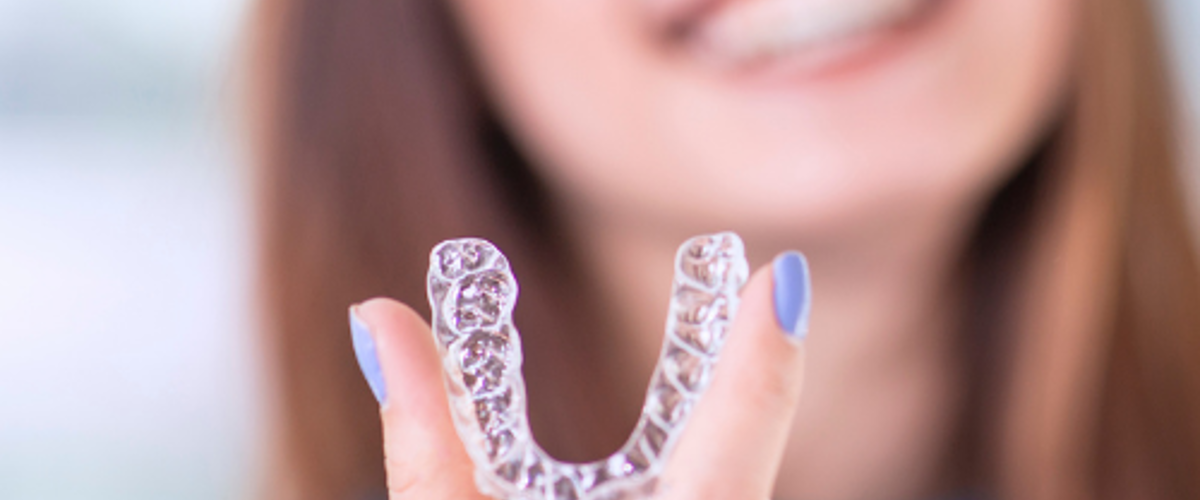| Dental Armour

Can I Use a Mouthguard as a Night Guard?
Everybody knows the basic fundamentals of good dental care and hygiene, right? Just to make sure, you’ve got things like: Brush your teeth twice daily, floss after meals, use mouthwash, avoid sugary foods and drinks, and visit your dentist regularly for routine check-ups.
All of the above are indeed great ways of ensuring that you help to keep your teeth healthy and well looked after, but there are also other preventative measures you need to take. You see, the teeth are vulnerable.
All it takes is one blow to the face and you run the risk of chipping or breaking your teeth, or worse still, losing some entirely. There’s also the risks associated with bruxism (grinding of the teeth).
The good news is that there are things you can do to protect your teeth, both when you play sports, and when you sleep, which is why mouthguards and night guards are so popular.
Despite being very similar, the two devices serve different purposes, which begs the question of can I use a mouthguard as a night guard? Well, that’s what we’re going to find out shortly.
What are the differences between a night guard and a mouthguard?
As mentioned, night guards and mouthguards are similar, and they serve similar purposes, but there are still some fundamental differences between them which you should familiarise yourself with.
Mouthguards
Mouthguards are designed primarily to be worn for fairly short durations of time, namely by athletes and physically active individuals who wear them while they take part in sports.
A lot of sports are physically demanding and there is therefore a risk of having your teeth injured or knocked out entirely. Not only that, but there’s also the risk of your teeth injuring your mouth such as biting your tongue or your cheek perhaps.
A mouthguard is designed to fit over the teeth and gums and protect them when they’re at risk during sports.
A conventional mouthguard is usually made from EVA (Ethylene Vinyl Acetate) which is a strong material with a consistency and structure similar to rubber, that has some slight give under pressure.
Night guards
A night guard looks similar to a mouthguard, and is worn in a similar fashion, but its main use is to protect the wearer from the risks of bruxism.
Bruxism causes a person to clench their teeth and jaw and grind their teeth, often when they sleep. A night guard is worn when a person sleeps to prevent them from grinding their teeth.
Night guards are typically made from a thin clear acrylic plastic that is easy to customise. It is thin enough to be comfortable while worn to sleep, but strong enough to offer maximum protection to the teeth of the wearer.
Can I use a mouthguard as a nightguard?
Unfortunately, no.
Though similar, a sports mouthguard should not be worn at night in place of a night guard to protect against bruxism.
The material is different, the structure is different, and the purpose is different. Wearing a mouthguard at night could lead to dental complications, along with pain and discomfort, and nobody wants that.
Is it safe to sleep with a mouthguard?
No.
Sports mouthguards are not nightguards and they will not offer the same fit or protection as a nightguard. You should only sleep with a nightguard.
Why shouldn’t you wear a mouthguard for bruxism?
To begin with, one of the main reasons why you shouldn’t wear a mouthguard for bruxism is due to the fact that mouthguards are NOT designed for people suffering with bruxism, they’re designed to be worn by people taking part in contact sports.
Wearing a mouthguard for bruxism could lead to pain and discomfort because the bite will likely be different, and if it isn’t comfortable the muscles in the face won’t respond in the same way, which could cause more pain and discomfort.
Not only that, but mouthguards are thicker than nightguards, which could cause pain and discomfort if left in for hours.
Can you make your own night guard?
No.
Dentists do not advise patients make their own night guards for a number of reasons, including:
- It will be made from the wrong materials
- It won’t fit in the same way as a professional night guard will fit
- It will cause the teeth to become sensitive and painful
- It could lead to jaw ache
- It could cause the teeth to become misaligned
- It will not offer the same levels of protection from bruxism as a professional nightguard would
Book an appointment today
It doesn’t matter whether you’re a boxer, a football player, an athlete, or an individual that suffers from bruxism, if you need a mouthguard, a night guard, a dental splint, or anything else, give us a call here at Dental Armour.
Here at Dental Armour, we specialise in mouthguards, nightguards, and more besides and have products to suit all budgets. Want to learn more? Get in touch with the friendly team at Dental Armour today.
